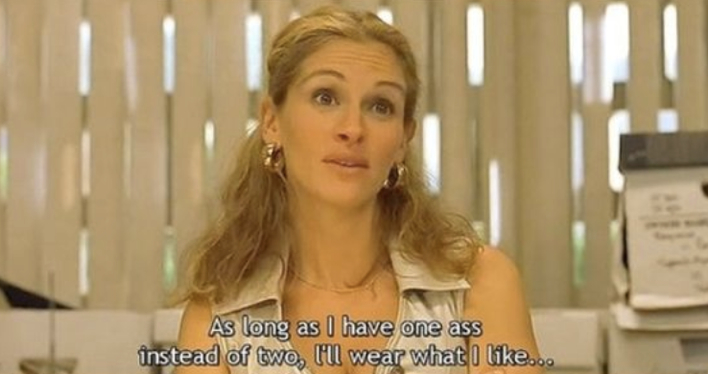
Despite over a quarter of a century of legislation, sexual harassment is still alive and well in the Australian workforce.
One quarter of women and one in six men have experienced sexual harassment at work, according to an Australian Human Rights Commission report in 2012.
The statistics are alarming, and in all probability, the figures are likely to be even bigger.
Many people don’t report sexual harassment. Sometimes people feel too ashamed or upset to report instances; other times, they’re confused about when it’s work and non-work related.
What can you do if you’re the victim of harassment in the workplace? What even constitutes harassment? What are the actionable steps you can take when you’re ready to speak up?
PEDESTRIAN.TV got in contact with Alex Grayson, Principal of Employment Law at Maurice Blackburn, to find out the best way to go about it.
Grayson – who boasts almost 20 years’ experience in industrial relations law – is particularly passionate about unfair treatment in the workplace, and has been busy campaigning for reforms of sexual harassment laws in Australia (they currently let perpetrators get away too easily, she reckons).
“Australia’s outdated laws don’t make it easy for either companies or the victims to report the sexual harassment,” says Grayson.
“Having said that, I’ve noticed more people coming forward since the start of the #MeToo movement and NOW Australia, in particular young men which proves sexual harassment is not a gender-exclusive issue.”
https://vimeo.com/261673437
According to this recent ABC report, a 2017 survey of workers in the hospitality industry in Victoria indicated that more than 85 per cent of workers, male and female, had been sexually harassed at work.
PEDESTRIAN.TV: First things first, what constitutes harassment in the workplace, from a legal perspective?
“Sexual harassment has a number of required elements under section 28A of the Sex Discrimination Act,” explains Grayson.
Firstly, there has to have been conduct of a sexual nature. This includes an unwelcome sexual advance, or an unwelcome request for sexual favours, to the person harassed. “Conduct of a sexual nature” includes making a statement of a sexual nature to a person, or in the presence of a person, whether the statement is made orally or in writing.
Secondly, that conduct needs to have occurred in circumstances in which a reasonable person would have anticipated the possibility that the person harassed would be offended, humiliated or intimidated. This doesn’t mean the offender needs to have anticipated that their conduct would be unwelcome, but that a reasonable person would have anticipated it in all the circumstances. These circumstances include the sex, age, sexual orientation, gender identity, intersex status, marital or relationship status, or religious belief of the person harassed, and the relationship between the harassed person and the person who made the advance or request or who engaged in the conduct.
Such conduct can be a one–off. Unfortunately, many people that have been harassed wait to talk to a lawyer until the behaviour has really escalated or become unbearable. I urge people to talk to a counsellor, a doctor, a colleague, a union official or a lawyer at the earliest opportunity. That way an individual can look after their health as best they can and also understand their rights. Even after consulting a lawyer, a complainant doesn’t have to hire that lawyer to take on their case.
On that: what kind of costs are involved with getting legal help?
Costs vary, but it is best to get advice if you have a complaint, even if it is only an initial consultation, to assess the gravity of your complaint and to understand what your rights are and what the process looks like, as there are a number of different options and choosing the right one is important.
If you’re not quite comfortable seeking legal help, what are some other proactive steps you can take?
Keep a record of what happens and when with either a note in a diary, on your iPhone or a text to a friend.
Find out if there’s a senior colleague or a support person that you can make a complaint to, or find out if there are any policies in place at your workplace for making complaints.
If that person or policy doesn’t exist, or the person you can complain to is the one sexually harassing you, then you can make a complaint to the Australian Human Rights Commission.
Being sexually harassed at work can be extremely confusing and stressful – I’ve spoken and worked with many young workers who thought being hit on or touched inappropriately at work was their fault when it absolutely isn’t. Often sexual harassment can also have an impact on your mental health, so it’s a good idea to see your local GP and discuss it with them.
Here’s a really grim hypothetical. Let’s say I’m a junior female in the workplace and a senior male grazes past me and touches my arse. I pull him up on it and he pretends it was an accident. What can I do next?
As the behaviour is escalating, it’s really important to report the unlawful conduct. This should be done through the complaints mechanism in the workplace. It’s also critical at this point to consult a union official or employment lawyer – sexual harassment is unlawful and people who are harassed have rights.
It is also important to know that it us unlawful to dismiss someone or subject them to any form of reprisal because they have made a sexual harassment complaint.
In addition, where someone is really affected by sexual harassment then they may be able to claim significant damages for economic loss for lost income and for hurt, humiliation and distress.
What are your thoughts on the HR industry in Australia? A lot of people are scared to go to HR because they don’t feel it’s safe to do so without ramifications.
A lot of the time people who are being sexually harassed are in a workplace that either doesn’t have a HR department or is too small to warrant one.
The way HR responds to a complaint can also vary between different companies – there are commonly instances for example where HR has not responded well to sexual harassment complaints but also instances where they have assisted.
The important thing to remember is that HR is part of the company, HR are not the complainant’s representative. With increasing public attention around sexual harassment hopefully the response to sexual harassment more broadly, including within HR, will continue to improve.
Regardless of how HR respond, it is important to obtain independent advice and assistance and there is also a need to improve the reporting requirements that are meant to be eliminating problems.
I’ve been working on a number of reforms that are designed to help eradicate sexual harassment in Australian workplaces, as well as to improve access to justice for victims.
This includes calling for greater protections for whistleblowers, removing time limits on making a complaint to the Australian Human Rights Commission, scrapping caps on damages in NSW for sexual harassment matters, expanding company reporting requirements regarding sexual harassment and imposing a positive obligation on employers to take all reasonable steps to prevent harassment of or by their employees.
So, in the timeless words of Elle Woods; have faith in yourself and know that change is a’coming. God knows we need it.




